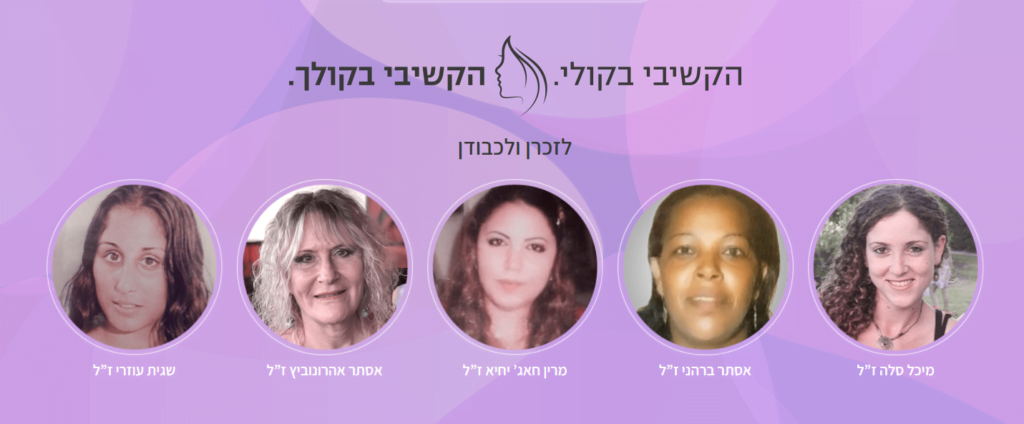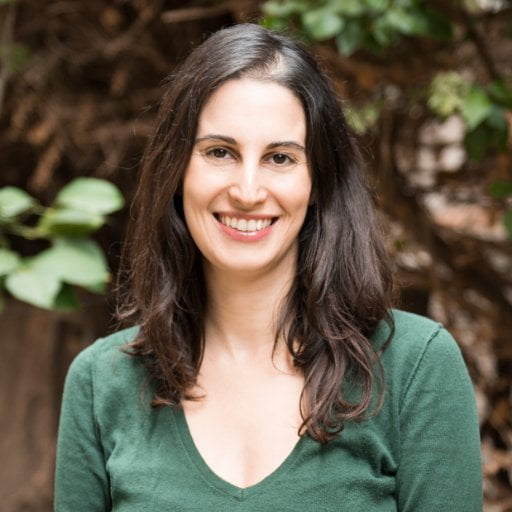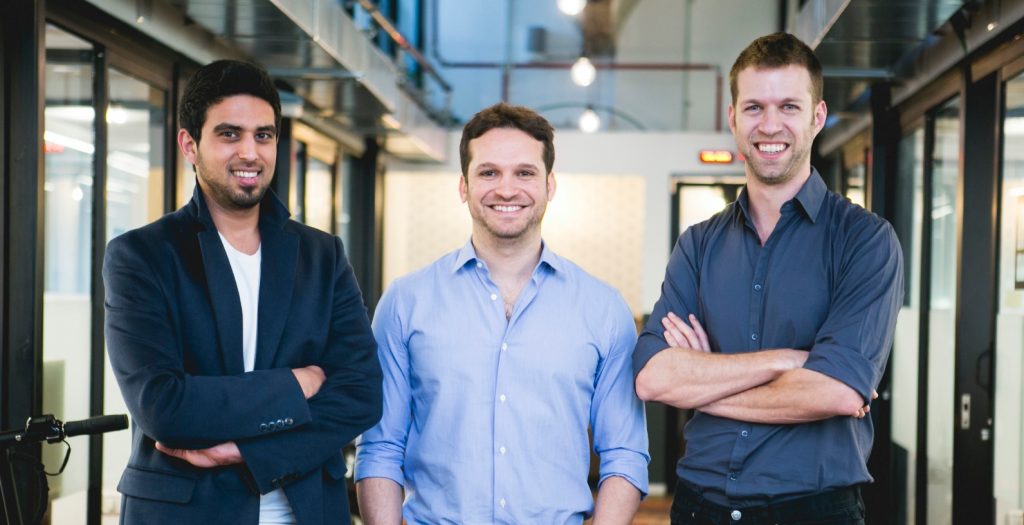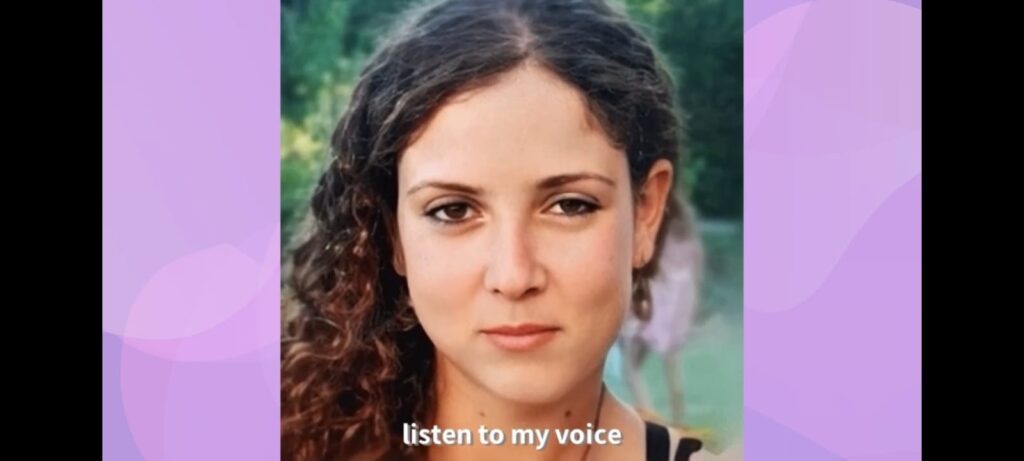A chilling video featuring the faces of five Israeli women who were murdered by their husbands has gone viral in an eerie social media campaign that has brought them back to life after death. With artificial intelligence and animation capabilities from Israeli “creative reality” startup D-ID, the videos use the voice of each victim — as well as realistic facial features and gestures — to convey the message that someone living in the reality of domestic abuse can and should get out before its too late.
The project, dubbed Listen To Our Voices, was created in response to a global and local surge in domestic violence since the start of the pandemic, and in honor of International Day for the Elimination of Violence Against Women on November 25.
With deep learning technology, AI startup, D-ID captured the faces, voices, and gestures of the late Michal Sela, the late Esther Aharonovitch, the late Marin Haj Yechieh, the late Esther Barhani, and the late Sagit Ozeri, as they described their own marital difficulties which led to verbal and physical abuse from their spouses. The five victims also encouraged other women who experience similar relationships to talk to experts who know how to deal with these situations.
“I was Michal Sela. In 2019, I was murdered by the man who was my husband. Today, I call on you, listen to my voice,” says Sela in the haunting clip. Here is an English version of the video.
Sela is perhaps the most well-known of the girls that are featured in the clip, and her death shocked the Israeli public when it occured in October 2019. Last month, the Jerusalem District Court found her husband Eliran Malul guilty of stabbing and killing her in front of her infant daughter in the Jerusalem suburb of Motza. Since her death, Sela’s sister Lily Ben-Ami has been active in getting her story out and has become a leading voice for women in Israel. She established the Michal Sela Forum, a non-profit organization with the goal of using technology “to save the next murder victim, through creative thinking, using prevention and real-time technologies, and raising public awareness of warning signs in relationships,” the forum’s official site says. Ben-Ami has since run a number of hackathons that tackle domestic violence and hosted participants from Israel’s tech ecosystem who offer solutions, create initiatives, and help raise awareness about domestic abuse. Ben-Ami unveiled the video at a UN panel and they have since gone viral, according to an announcement from D-ID.

According to a study released this month by the Women’s International Zionist Organization (WIZO), domestic violence complaints jumped 315 percent in Israel in 2020, during the first year of the COVID pandemic. According to the data, 26 murders were committed, a significant increase from the previous year’s 17. The increase in distress calls to Israel’s domestic violence hotline was staggering — up to 5,866 from last year’s 2,286. More than half of those calls dealt with spousal violence. Israeli Police also recorded 20,140 incidents of violence and threats between couples in 2020.
WIZO’s Division for the Advancement of Women Director Rivka Neumann told The Media Line that the increase in domestic violence is directly linked to the pandemic and occurred in all sectors of Israeli society.
The campaign
The campaign was initiated by Shiran Melamdovsky Somech, a social tech entrepreneur, who created it in collaboration with boutique Israeli advertising agency DIBOOR, and is based on D-ID’s artificial intelligence technology in collaboration with the Local Government Center. They also collaborated with Facebook Israel (Meta) and a number of other Israeli high-tech companies such as Natural Intelligence, Outbrain, and Cognate.

“The Michal Sela Forum is always talking about the integration between technology and social activities against domestic violence. This is how I came with the idea because me and my friends and many women, in general, have been exposed to dangerous relationships with jealous and obsessive partners and stalkers. At the time, you don’t know that’s it’s a dangerous relationship. We figured this out later,” she tells NoCamels, “So many other women are in those kinds of relationships and they don’t know their life is in danger. So this is our main message.”
“It’s also very important to bring up the issue of the safety breakup because most of the violence and murder is around the topic of the woman wanting to break up,” she adds. “The campaign is to bring back the lives of those women, and share their insight and messages and what they would do differently today. We can hear the story, look into their eyes, and learn from their mistakes.”
Gil Perry, CEO of D-ID, worked on the video reenactment technology with co-founders Sella Blondheim, current COO, and Eliran Kuta, current CTO. Their company, D-ID, began as a “de-identification” startup and designed the first facial image de-identification solution to protect images and videos from facial recognition software. Later, it went on to use deep learning algorithms, image processing, and neural networks to animate still photos, facilitate video productions, and create viral video experiences.
Sign up for our free weekly newsletter
SubscribeD-ID started this project “almost a year ago,” Perry tells NoCamels. “Immediately it was just obvious we had to do it,” he adds.
Perry explains that the way the technology works is that the team needs to film a video around a single image. “In this particular example, we shot famous Israeli actresses who acted as the women that we see in the video, and then using our algorithms, we create ways that those algorithms can know how to mimic every micro gesture on the faces of the actors, into the photos,” he explains, “You get a video in the highest quality, of this person.”
The Israeli actresses that played each role were Mali Levi, an actress known for the movie Atomic Falafel, who played Michal Sela, Ruth Asrasai, who played Esther Barhani, Luna Mansur, who played Marin Haj Yechieh, Esther Ahronowitz, who played Evelin Hagoel, and Hila Saada, who played Sagit Ozeri.

“We think it’s very important to, first of all, have professional actors to portray these women, because it’s very, very sensitive. And because these women represent a free and strong woman themselves, and we want to make sure that was part of the message,” says Melamdovsky Somech.
“The future of the idea and the direction we are going is to that we have a vision to create realistic digital personas in 3D, full body. People talk today about virtual reality, the metaverse, and those kinds of things. You will be able to have interactions with people — real people and avatars and people who are not here, in the most realistic way,” says Perry.

Perry explains that the families of the featured women were very important to the core of the campaign. They help with the script, the photos, the voice, and later the video. It’s important to get their opinions and that they are part of the process.
He refers to the father of Sagit Ozeri, who was so moved the first time they showed the finished product to the families of the victims, he said, “It’s like you gave me a present. It was a present to have her for another minute.”
Liron Ozeri, brother of Sagit Ozeri, spoke to NoCamels about his reaction to the voice clip featuring his older sister, who was 23-year when she died after being strangled to death by her partner in Tel Aviv.
“The project actually had double the impact,” he says, “First is giving the families an opportunity to have this moment with their loved ones and to see and hear them again. And second is to help other women and to show them how it sounds and feels, and to be aware of the signs.”
“What’s important to emphasize here, for me, is that when we incorporate the D-ID, one of the main principles that we have for ourselves is doing good,” says Perry, “These are the things that make you want to wake up in the morning and make D-ID so proud. Besides being part of the Startup Nation, we are part of the society and that’s our place to help. If we managed to do that — to save and help even one woman, it means the world. It means everything.”
Related posts

Editors’ & Readers’ Choice: 10 Favorite NoCamels Articles

Forward Facing: What Does The Future Hold For Israeli High-Tech?

Impact Innovation: Israeli Startups That Could Shape Our Future




Facebook comments